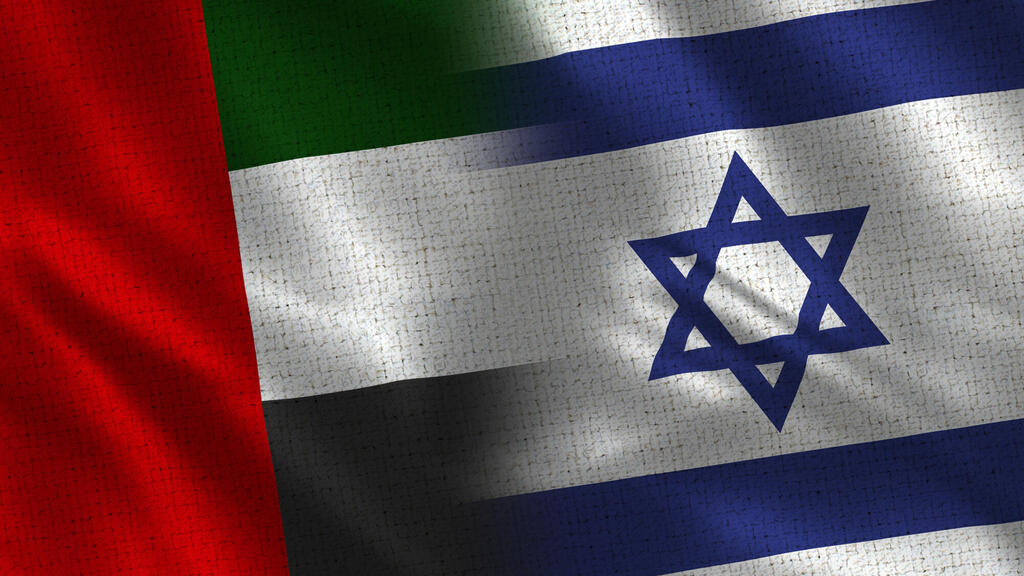
No news is good news? Israel-UAE relations remain strong despite war
The Abraham Accords opened up business opportunities for both countries. Today, that relationship remains strong despite an apparent void in tech news
Don’t be fooled by the media blackout: business between Israel and the United Arab Emirates, bolstered initially by the Abraham Accords in 2020, has been thriving despite Israel’s ongoing war with Hamas and intense scrutiny from the rest of the world.
The lack of international news surrounding sustained business and trade opportunities between the two nations has been a diplomatic decision, not due to a slowdown in deals following October 7 or the subsequent Houthi Red Sea crisis.
2 View gallery


In 2022 bilateral trade betwen Israel and the UAE reached over $2.5 billion
(Credit: Shutterstock)
In the days following the 7/10 attack UAE trade minister Thani al-Zeyoudi confirmed they "don't mix the economy and trade with politics." Earlier this month, a report in The New York Times highlighted that the UAE remains somewhat of a “diplomatic lifeline for Israel” while ties to other Arab countries may suffer both in and out of the public eye.
In the years following the Accords, Israel and the UAE have collaborated on several initiatives, but the Emirati government has faced increased public scrutiny for not publicly criticizing Israel following October 7. Earlier this month CTech had reported that several social media campaigns have been launched urging boycotts of Emirati products due to its relationship with Israel.
Regardless of it all, one player can confirm the strength of the ties between these two nations despite the geopolitical tensions. The UAE-IL Tech Zone is a platform and community that bridges technological, entrepreneurial, business, venture capital, and government collaborations between the UAE and Israel. According to Co-Founder Noa Gastfreund, the tech zone is intended to build on the Abraham Accords and facilitate trade and opportunity with a focus on technology-related ventures.
“The normalization between Israel and the UAE is something for the long term,” she told CTech. “So even if it's quiet right now, even if we don't see it, there are many forces that would push for things to happen now and in the future… It's a strategic move. It's not something that came out of the blue.”
Gastfreund operates the UAE-IL Tech Zone alongside Leila Amar and Fusion VC’s Guy Katsovitch. Leaders within the ecosystem include Beewise CEO Saar Safra and Papaya Global’s Amit Yampolsky, with partners ranging from Start-Up Nation Central, Israel’s Minister of Economy and Industry, and Taglit Birthright Israel.
Benefits for both countries in the early days of their normalization were clear immediately. In 2022, bilateral trade reached over $2.5 billion, with the UAE becoming Israel's 16th largest trading partner. The following year the two countries signed the final version of the free trade agreement which lowered or removed tariffs on more than 96% of tariff lines.
Early 2024 saw a rare public statement from the UAE, suggesting that peace with Israel ‘could turn cold’ if the war were to continue. In March, the country threatened to stop the operation of a land trade bridge on the condition of more humanitarian aid to Gaza, but it was later revealed that an Emirati military officer conducted a secret visit to Tel Aviv, maintaining diplomatic relations behind the scenes.
At the time of writing, more aid is entering Gaza via Cyprus with the region expected to receive nearly 400 tons of food.
As geopolitics needs to be navigated carefully, Gastfreund urges the two nations to seek more secure connections behind the scenes with a focus on tech. “When it comes to tech, it's a lot easier to speak the tech language,” she says. “Because political and geopolitical aspects will always be there it will always be a complication in this region. But if you come with some kind of fresh new language just let's do tech… at the end of the day, we are sharing the same challenges when it comes to lack of water resources and global warming.”
It is no secret that the UAE has steered away from its dependency on oil in recent years and has actively attempted to tap into tech as a way to maintain a stronghold in the region. The country last year secured a partnership with Japan for tech innovation and climate change, and maintaining a relationship with Israel in the tech space can also help both nations long after the war is over.
“Even if something happened recently, it would never go on the media or publicly, I think,” she concluded. “We need to understand that there are some sensitivities right now in the region… So it is complicated right now, but I guess leadership wants one thing to happen on both sides.”














